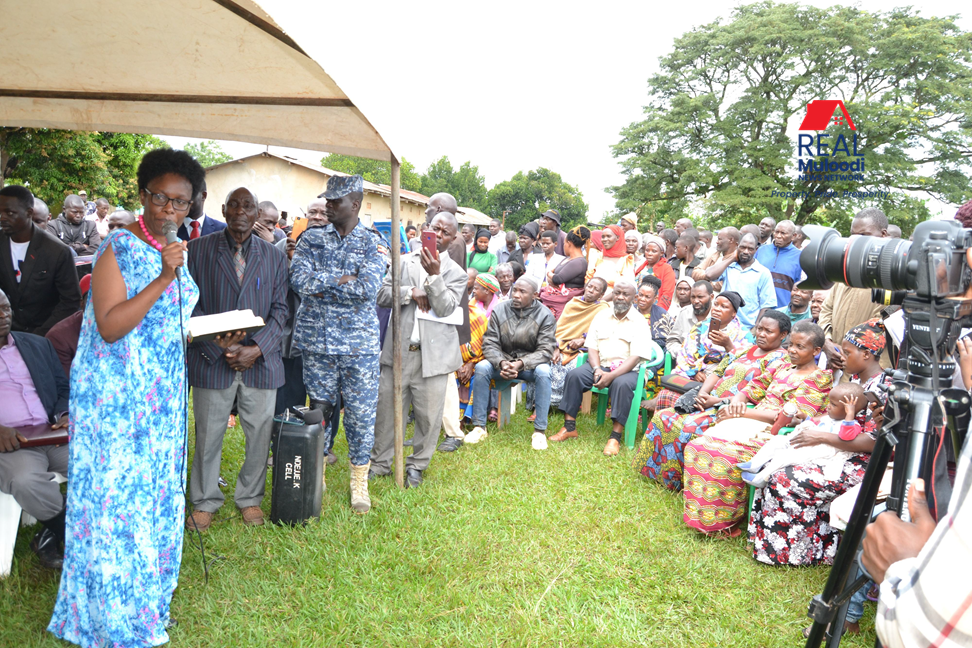UGANDA, Luweero | Real Muloodi News | A complex land dispute is unfolding in the central region of Uganda, involving the creation of freehold titles on Mailo land, leaving many locals baffled.
The government is investigating the origins and intentions of these freehold titles, as they create confusion and tensions within the region.
The roots of this problem date back to 1967 when the Central Government abolished cultural institutions and left a substantial portion of the Mailo land titles under the custody of the Uganda Land Commission.
This move has resulted in a complicated situation that many believe is unsustainable.
The Uganda Land Commission (ULC) was tasked with managing these Mailo land titles, but recent developments have seen some of these titles transferred to the Buganda Land Board (BLB).
This transfer has raised questions and disputes over land ownership and land use rights.
One particular area of concern is Block 207, Plot 2 Bulemeezi in Luweero District.
More than 2,000 sitting tenants in this region are facing issues with different landlords who claim to have acquired freehold land titles on top of existing Mailo land through the Zonal Land Office at Bukalasa.
While the Buganda Land Board is not seeking to evict these tenants, the conflict arises from those who claim to hold freehold titles on the same land.
The matter becomes more intricate as over 13 freehold land titles were created on Mailo land titles measuring approximately 8 square miles that originally belonged to the Buganda Kingdom.
These lands were later placed under the Uganda Land Commission after the abolition of Kingdoms in Uganda in 1967.
The land was subsequently returned to the Kabaka of Buganda in 2013, following an agreement between the President of Uganda and the King of Buganda.
Chief Executive Officer of Buganda Land Board, Mr. Simon Kabogoza, wrote a letter requesting the cancellation of one of the titles, emphasising that a Freehold Certificate land title had been created on the official Mailo land title of Bulemeezi.
This official Mailo land had been returned to the Buganda Kingdom and was no longer under government control.
A source within the Land Registry disclosed that hundreds of complaints have been registered concerning lands that were initially classified as Mailo but transferred to the Uganda Land Commission in 1975.
Subsequently, several Freehold titles were erroneously created on top of the original Mailo land titles, with recommendations from district land boards in central Uganda.
The government, represented by Luweero District Resident Commissioner, Mr. Richard Bwabye, is now conducting investigations to determine the source of the conflicts and arrive at a solution.
If fraudulent acquisitions of freehold titles are discovered, they may be subject to cancellation.
However, it is unlikely that the Buganda Kingdom will displace bibanja holders (land occupiers with customary land use rights), as the problem mainly lies with individuals who possess freehold titles on the land under investigation.
Some of these individuals, like Mr. Ronnie Ssendaula, who holds the Freehold title for Block 207, Plot 61, have owned their properties for over 15 years.
Mr Ssendaula obtained his land title from the land office in Bukalasa and has faced claims from Buganda Land Board agents asserting ownership of his property.
In Makulubita Sub-county, Luweero, around 5,000 bibanja holders who occupy the original 8 square mile land, subdivided into more than 40 freehold land titles, are affected by this land dispute.
The Agreement signed between the President of Uganda and the Kabaka clarified the properties that were returned to Buganda.
However, the land given away by the central government to different government departments remains a contentious issue.
To understand the complexity of the situation, it’s essential to know the historical context.
During the 1900 Buganda Agreement, all land in Buganda was divided into two categories: crown land, controlled by the colonial government, and mailo land.
Mailo land was further divided into land given to officeholders and that given to private individuals.
This division of land formed the foundation of the current land disputes and controversies in the region.
READ MORE LIKE THIS:
Lands Minister Nabakooba Orders Arrest in Luweero Church Land-Grabbing Case



